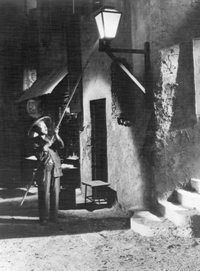'The Book Interview: Frank Dikötter', by John Sunyer, The Statesman, 29 July 2011
How did it feel to win this year's Samuel Johnson Prize for your book Mao's Great Famine?
I'm delighted! I've never won a prize before. The famine resulted in the deaths of tens of millions of people, who died completely unnecessarily because of Mao. We can't change the past, but it's wonderful that the prize is making a louder noise about it.
You've previously written about drugs, prisons and race in China. What led you to investigate the horrors of the "Great Leap Forward" (1958-61)?
Is there a more catastrophic example of a utopian plan gone wrong than the Great Leap Forward? In the years running up to 2008 and the Beijing Olympics, the Communist Party archives were quietly opening up, offering access to unseen party records. I seized my opportunity, because now most of this material is being digitised - information is being reclassified, and the party is becoming more cautious.
You say Mao's famine resulted in more than 45 million deaths. This is considerably higher than the usually accepted figure.
Detractors of the book say that my numbers are too high. But everything is based on declassified material taken directly from the Communist Party archives. There is classified information hidden somewhere deep inside the party vaults. It's shocking to think that there is more horrendous stuff we don't know about. And yet the book's main concern is not with statistics.
No, it looks at the unravelling of a society through the effects of radical collectivisation.
The scope of the violence that runs through 1958-62 is extraordinary. Several million people were starved to death, tortured, mutilated or buried alive. I got hold of the minutes of a meeting that took place in Shanghai on 25 April 1959. Mao clearly indicates that he is aware of the famine. He says that when people die it's better to have half of them starve to death, so that the other half can eat their fill. He deliberately increased the procurements from the countryside, which in turn increased the burden on those who had the least amount of food.
You call Mao a monster, but didn't ordinary people also play an important role in the famine?
Many people living through the Great Leap Forward had to make horrible decisions. Some felt compelled to do unspeakable things to neighbours, friends, or even family members, because the only alternative was death.
You found old police files in Chinese flea markets.
In China, these are called "old papers". One file included the case history of a man who committed suicide in 1958. At that time, there was a popular slogan: "Technical innovation is a great revolution." The man accidentally misspelled one of the [Chinese] characters and wrote: "Technical innovation is no revolution." He was so terrified at the prospect of having to explain his mistake to the authorities that he hanged himself.
Has the political system in China changed much since the period you write about?
Despite its intention to present itself as open-minded, the party continues ruthlessly to eliminate dissent. The big names, such as Liu Xiaobo and Ai Weiwei, do great work, but it is also important to recognise the smaller voices. There are farmers who have had enough of being bullied. They know they'll get beaten to death if they speak out, yet they remain dogged in their protests. I have the privilege of living in Hong Kong, where I'm allowed to write freely. I'm a coward. I just read books.
Which non-fiction writers working today do you admire?
I have great admiration for some of those writing on the Soviet Union. I love books by Simon Sebag Montefiore, Robert Service and Catherine Merridale. I also like Orlando Figes. The most difficult thing for me when I came to work on Mao's Great Famine was to restrain myself from criticising some Sinologists for the absurdities they have written about that period.
